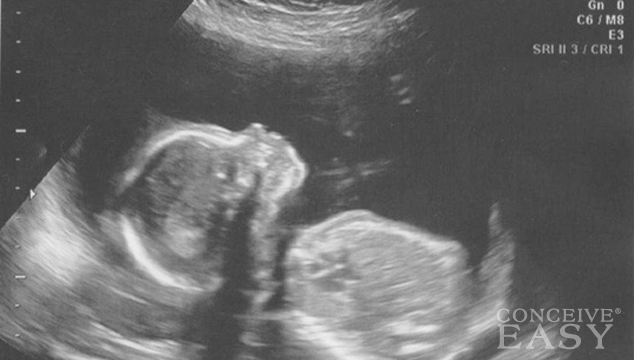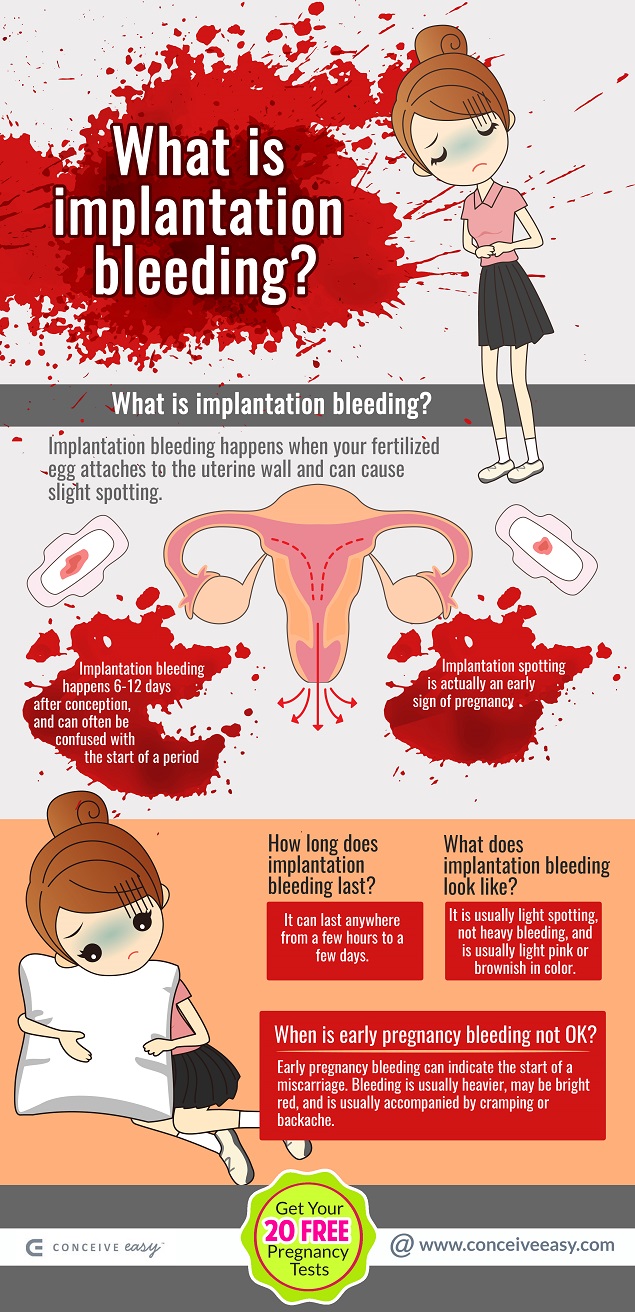![]() The information provided by our expert should not constitute a diagnosis of your condition. Always consult a medical practitioner or healthcare provider for a formal diagnosis. By making use of this content, you agree that ConceiveEasy and the expert assume no liability.
The information provided by our expert should not constitute a diagnosis of your condition. Always consult a medical practitioner or healthcare provider for a formal diagnosis. By making use of this content, you agree that ConceiveEasy and the expert assume no liability.
How can you tell if you are getting your period, or if you are experiencing early pregnancy bleeding? Some women continue to have periods while they are pregnant, but how common is that? How can you tell if it is implantation bleeding or if your period is here? When is bleeding enough to warrant contacting your doctor? Those are all very important and valid questions, and today we are going to help you figure them all out. Claim Your 20 Free Pregnancy Tests – Click Here

Implantation bleeding occurs in about one third of pregnant women. It usually happens about a week after you ovulate, or three weeks from the date of your last menstrual period. Implantation bleeding is normally pinkish or brownish in color, and it will come before your period is due.
Implantation bleeding can be differentiated from a period by the lack of accompanying symptoms. With implantation bleeding, there will be no cramps, no breast tenderness, and no irritability like with PMS. There are usually no other symptoms other than the blood, which is usually darker than normal menstrual blood. There is also usually less blood than with a normal period, and some women’s implantation bleeding is only spotting.

The only real way to know if it is implantation bleeding or your period, if you can not tell on your own, is to take a pregnancy test. You will have to wait until the date that your period should start to get an accurate result. However, if you can not wait, and take a pregnancy test before your period is due, you do have a risk of getting a false positive result even if you really are pregnant, since there probably will not be enough hCG in your body yet to be detected by a test.

If you are bleeding and think you may be pregnant, the first thing to do is take a test to be sure. If you get a negative result, it could be implantation bleeding and you are testing too early for the test to detect hCG in your system, or it could simply be your period.
If, however, the test is positive and you are bleeding, don’t automatically freak out. Bleeding during your first trimester is actually fairly common, affecting about 20 to 30 percent of women. Sometimes the changes to your uterus during early pregnancy, including the increased blood flow to the area, can cause some light spotting or bleeding for a day or so.
Many pee-on-a-stick addicts take pregnancy tests daily for 1-2 weeks straight for the reassuring, darkening double line on that pregnancy test. You’re not alone if you’re doing that! And good thing for the ConceiveEasy TTC Kit offer above, as you can get 20 free pregnancy tests to help you cost-wise just for trying out the kit.

However, if the bleeding continues, gets heavier, or is accompanied by pain such as cramping or back pain, you need to see a doctor. Bleeding during early pregnancy is sometimes a sign of miscarriage. About half the time, bleeding during pregnancy is a sign of miscarriage, and the other half of the time it is not.
So, a good rule of thumb to remember is that if the bleeding is enough to be a cause of concern for you, you should see your doctor. Where your pregnancy is concerned, it is always better to be safe than sorry. Bleeding associated with a miscarriage is generally brighter red in color, more copious and is often associated with cramping and pain. Do keep this in mind. Whereas, with implantation bleeding is usually much lighter in amount, and pink or brownish in color.

If you do wind up miscarrying or experiencing a chemical pregnancy (otherwise known as an early miscarriage), don’t fret. Just let your body heal, wait for your cycles to renew themselves again, and try again. Women who try to conceive shortly after miscarriage are generally more successful, so have faith. If you bought the ConceiveEasy TTC Kit to use the pregnancy tests, now try out the Months 1 & 2 supplement, to really give your fertility the boost it needs.
Good luck to you!











Comments